Mangled myths: How God of War's mythology stacks up
It's not like it's real history or anything
So many gods
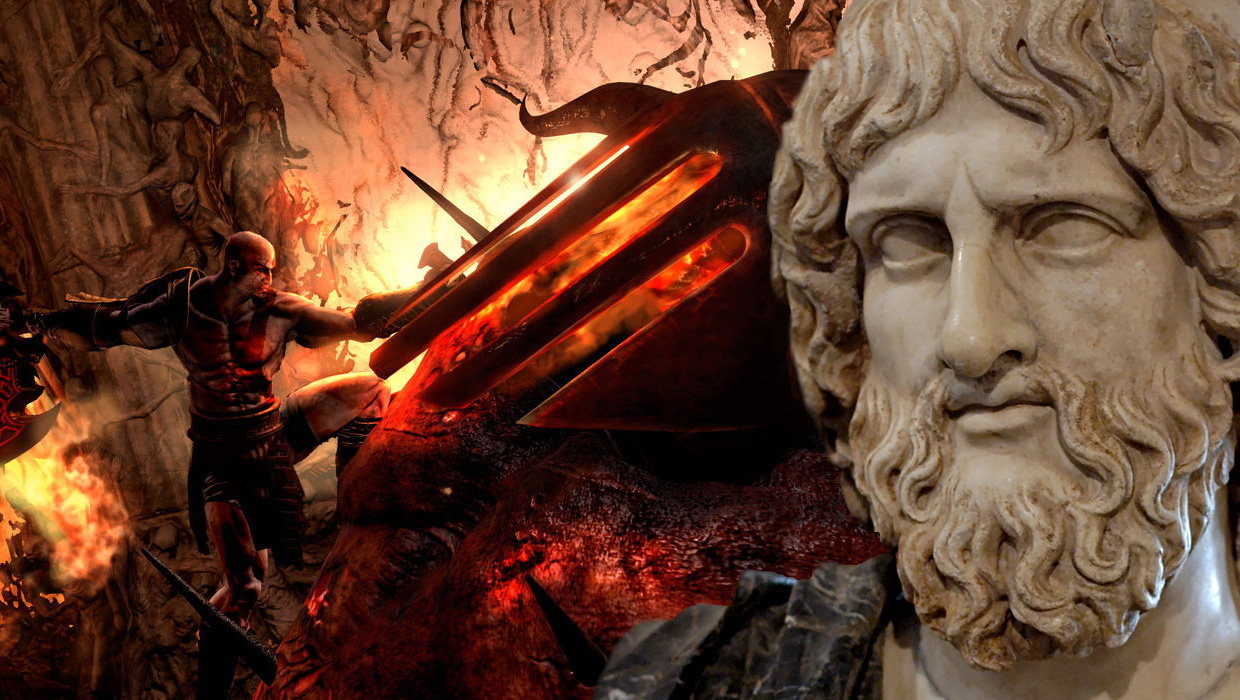
Those who know much about Greek mythology know that God of War is a relatively faithful representation of it, at least as far as video game adaptations go. Sure, it invents a guy named Kratos who murders his way through half the pantheon, which as far as the Ancient Greeks were concerned would have been heretical, if not outright tempting retribution from the gods. And yes, it's pretty fantastical, but more often than not it gets a lot of the core ideas and facts right.
Then again, there's the "not." Because it's a game series, there've been a lot of places where God of War has taken immense creative license with mythology. Sometimes events or personalities are changed to suit Kratos and his rampages, other times things are just invented out of whole cloth. Over the next few pages, we'll take a look at some of the more notable examples and identify exactly where the game diverges from the myth. [WARNING: The following entries contain minor spoilers for God of War: Ascension, as well as major spoilers for the earlier games. Proceed at your own risk.]
Ares
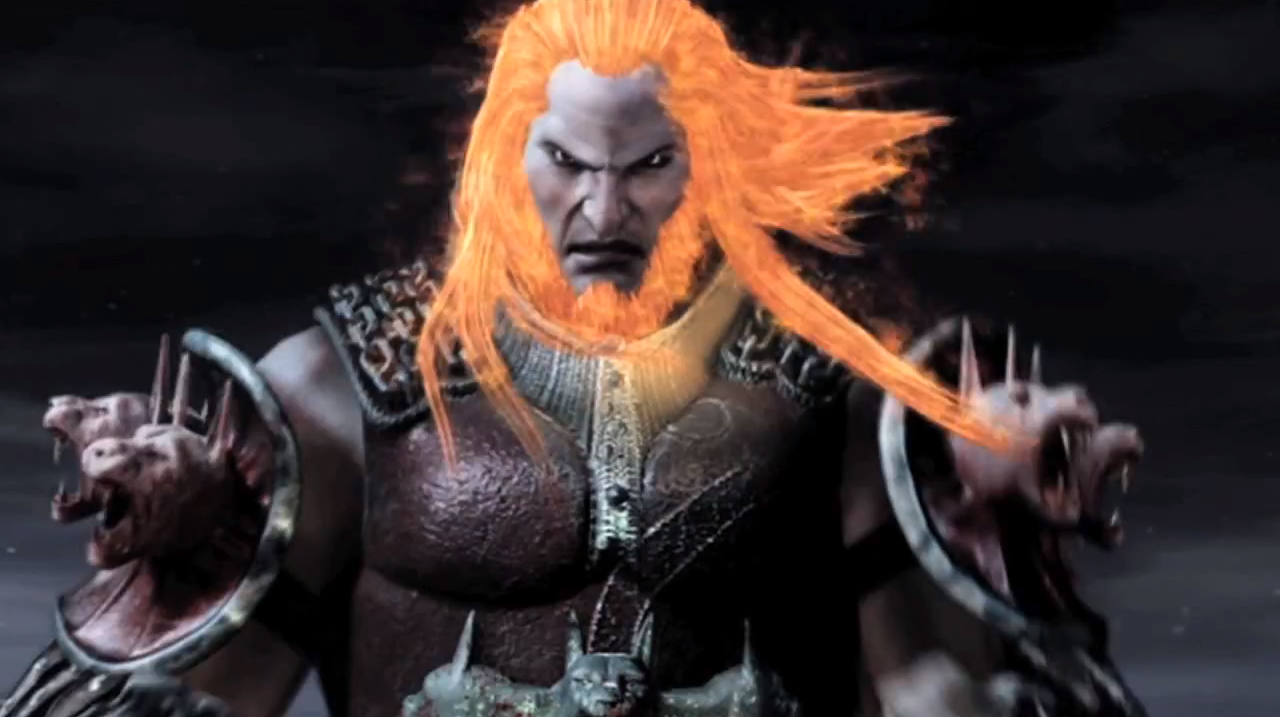
In Greek mythology, he's: The Greek god of war and unrestrained bloodshed, Ares was the big, violent dudebro of Olympus. This frequently brought him into conflict with other gods (especially Athena and the blacksmith god Hephaestus, whose wife, Aphrodite, Ares was constantly sleeping with), but generally he was just out to have some good, violent fun.
But in God of War, hes: Basically Satan, in that he strikes a deal with Kratos, saving the Spartans life in exchange for his soul. He then proceeds to use the deal to take away everything Kratos holds dear, and follows that up by challenging Zeus himself. So with the help of all the other gods, Kratos gets really huge and kills him.
Primordials/Protogenoi
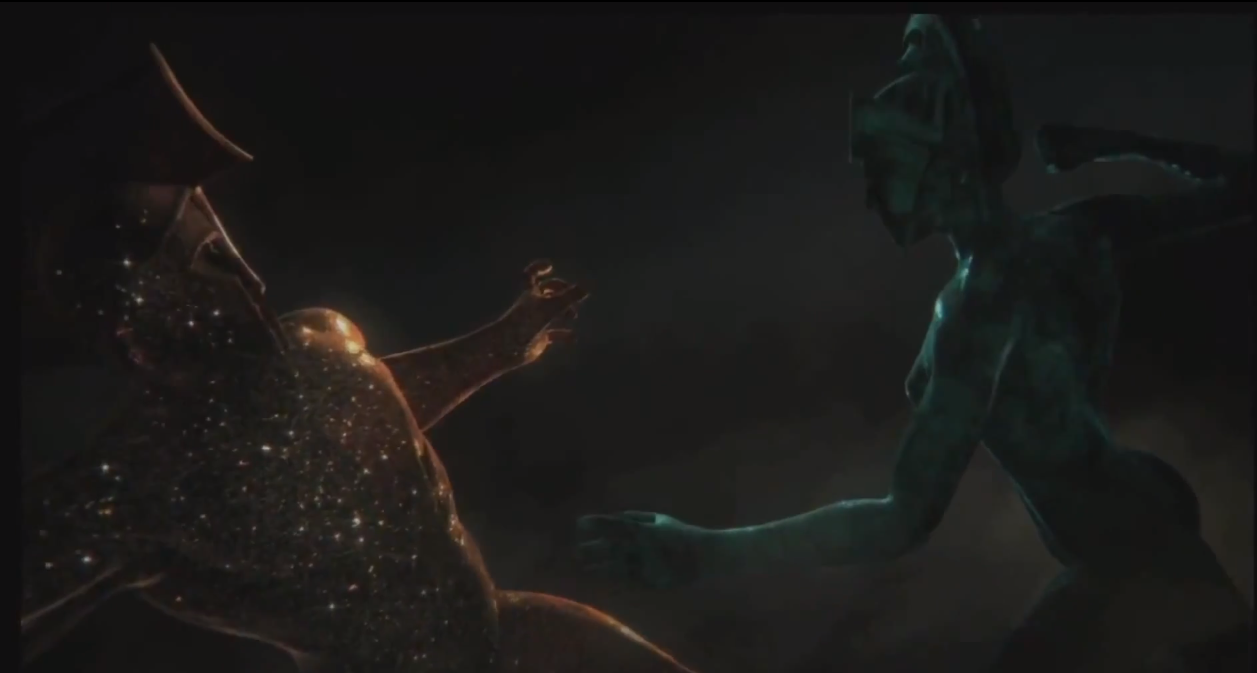
In Greek mythology, theyre: A handful of originator gods that predated the Titans, the Olympians, and pretty much everything else. They dont factor into a whole lot of stories, so their biggest accomplishment seems to have been bumping uglies a whole lot, thereby shaping the world and paving the way for everything to come.
But in God of War, theyre: Depicted as having fought all the time, and shaping the universe with their fighting. Go figure, although were almost surprised God of War: Ascension didnt try to turn the Greek creation myth into a sex minigame. Too bad it didnt, because most of the Primordials apparently died in the conflict. Oh, and in this version, the Furies are born from their fighting, instead of from the severed genitals of the primordial named Ouranos. We guess thats better? Less weird? Sure.
Orkos
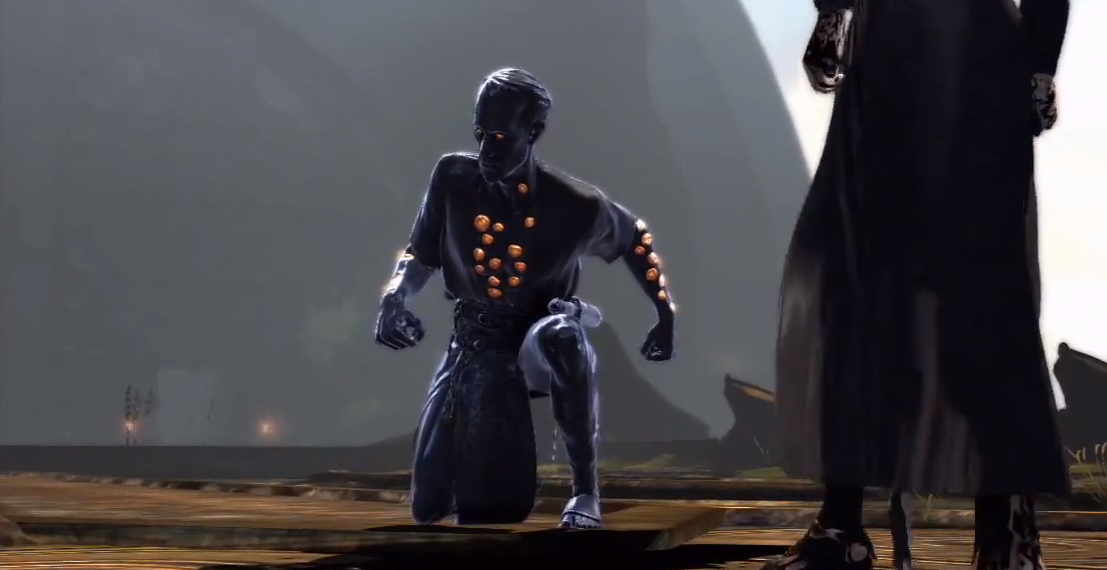
In Greek mythology, hes: Better known as Horkos, the son of strife-goddess Eris (whod make a great GoW villain all on her own). Sometimes depicted as physically weak or disabled, hes an associate of the Furies, and the personification of oaths and (more specifically) of the punishment that befalls those who break them.
Weekly digests, tales from the communities you love, and more
But in God of War, hes: The sickly, skinny son of the Fury Tisiphone and Ares, whos covered with huge lumps of amber into which sinners are inserted? Thats kind of weird. His weak appearance is consistent with mythology, but he seems to have a change of heart about Kratos oath-breaking, which is a little inconsistent with his role as the personification of punishment for oath-breakers.
The Oracle of Delphi
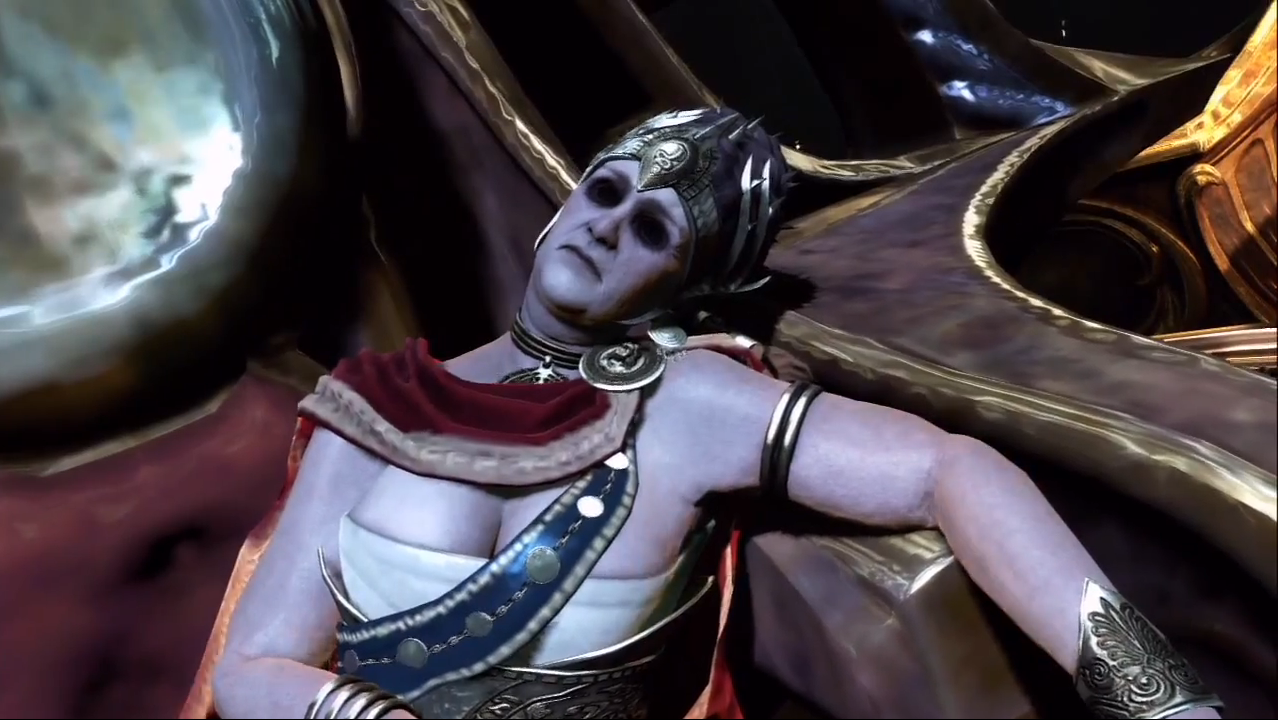
In Greek mythology, shes: A priestess, also called the Pythia, who allegedly inhaled toxic fumes to channel the sun-god Apollo and deliver prophecies to those who came looking for guidance. She factors pretty heavily into a lot of Greek myths, particularly stories about people who get negative prophecies and then try to prevent them, leading to disastrous consequences. (We kind of have to wonder how many of those myths were actually underwritten by the temple at Delphi.)
But in God of War, shes: In possession of an amulet that can alter the flow of time, and also held captive by her corrupt prophet, Castor. Otherwise, her depiction in God of War: Ascension seems relatively well-researched, right down to the toxic fumes, the bureaucratic process for asking questions of the Oracle, and the pythons that were the temples symbol (hence all those giant mechanical snakes in the game).
Castor and Pollux
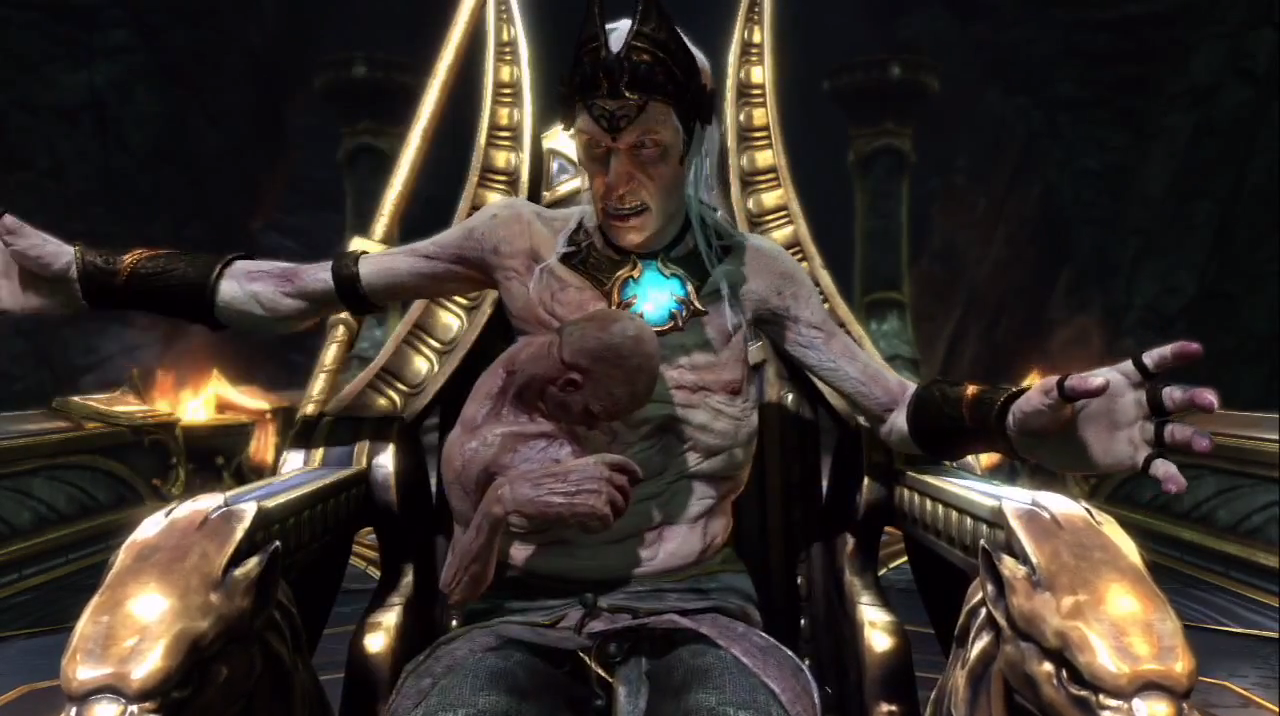
In Greek mythology, theyre: Twin brothers, or possibly twin half-brothers, at least one of whom hatched from an egg after their human mother, Leda, was seduced by Zeus in the form of a swan. Despite their weird parentage, they were generally regarded as great guys who liked to help people, and were granted immortality as the constellation Gemini.
But in God of War, theyre: A huge, conniving false prophet whos set himself up as lord and master of Delphi, enslaving its priests and keeping the Oracle herself hostage; and his stunted conjoined twin, whos apparently the real brains of the operation. Both are evil as all hell, and their only real relation to the mythological twins seems to be their names. Pity; they probably would have gotten along great with Kratos for five minutes until he got bored and smashed their skulls together like conjoined melons.
Satyrs
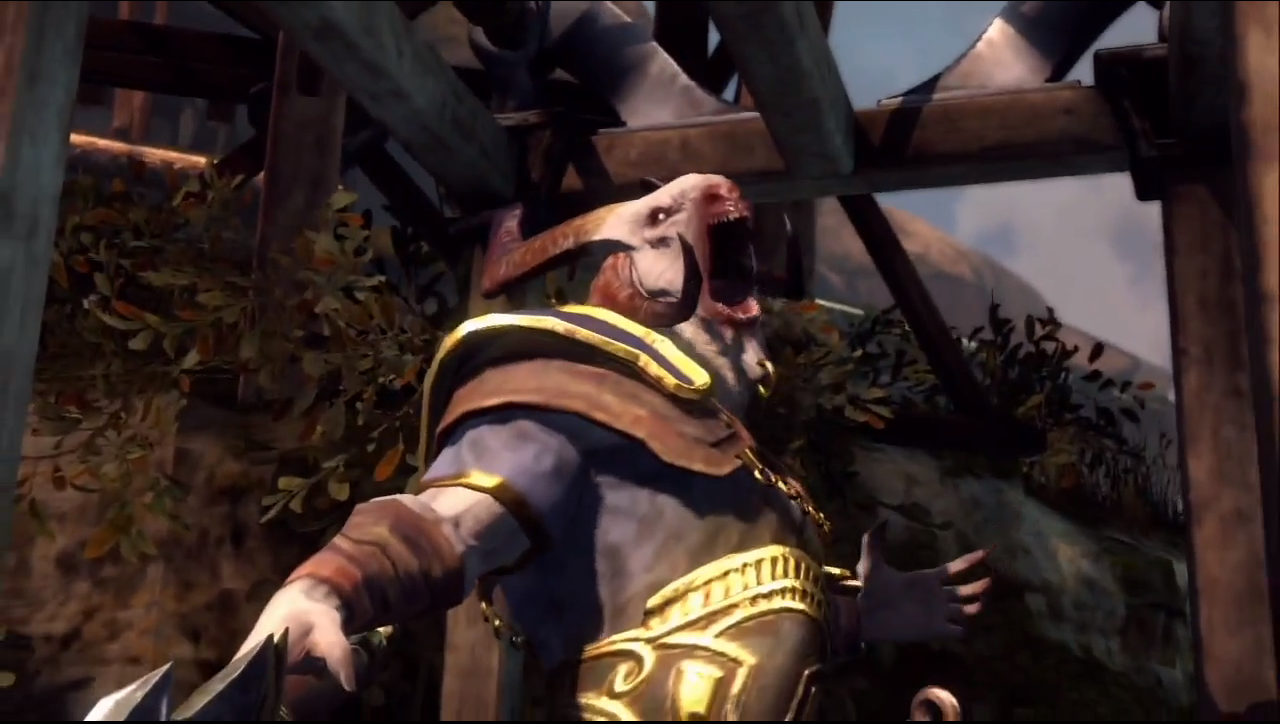
In Greek mythology, theyre: Mischievous, naked elf-like creatures with horse tails, goat ears, and sometimes huge goat dongs. The Roman versions are a little closer to the ones were more familiar with, which tend to have goat legs and little horns. Both varieties were known for sexual aggression, but in general they dont seem to have been regarded as bad guys.
But in God of War, theyre: Totally bad guys, and also way uglier. God of Wars satyrs are one of the series most numerous enemy types, and their goat faces and predilection for weapons and violence over rampant exhibitionism make it pretty difficult to confuse them with their mythological counterparts. Also, not one of them ever sits around blowing into pan pipes and making overtures at nymphs. (Although with those weird goat-lips, itd be funny to see them try.)
Pandoras Box
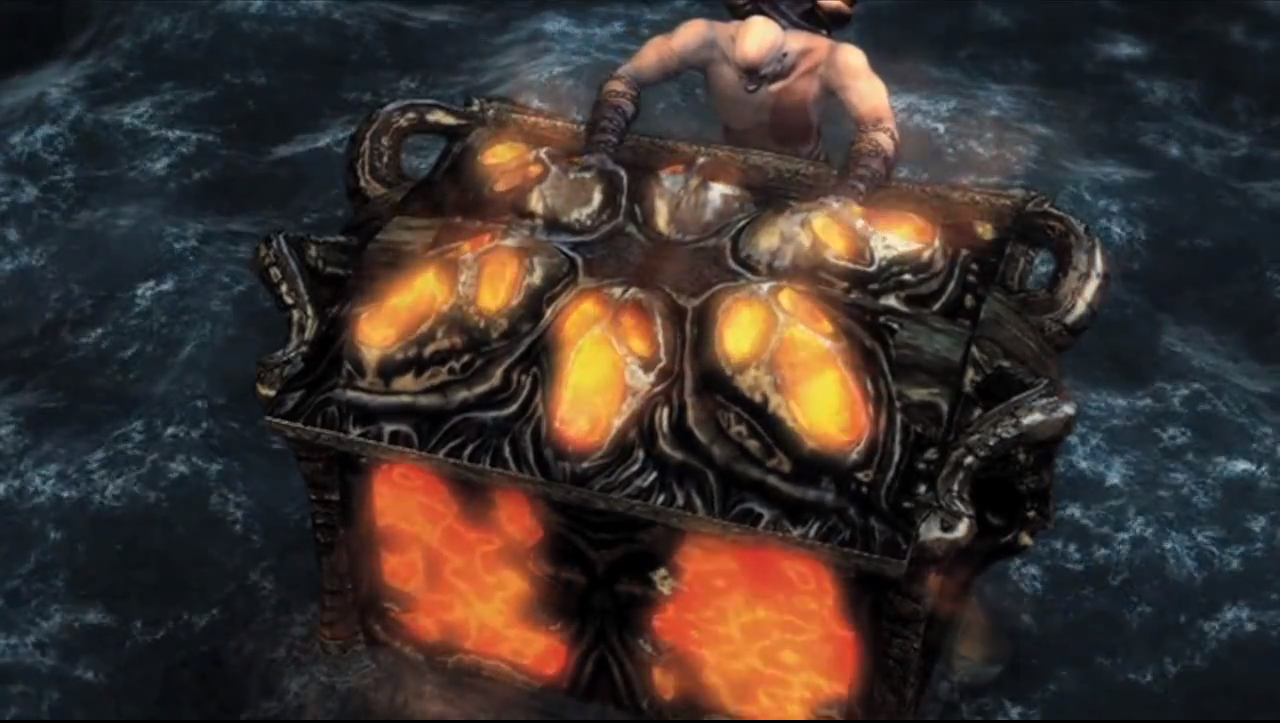
In Greek mythology, it's: The source of all evil in the world, which--depending on the version of the myth you listen to--also either gave mankind hope in the face of adversity, or still houses an entity so evil that it would extinguish all hope if it were ever freed.
But in God of War, its: A magic box that makes you huge. Also, opening it releases a fear that makes Zeus betray and repeatedly try to kill Kratos. Because as we all know, Kratos is just a swell guy and Zeus totally needed that extra push if him wanting to get rid of Kratos was going to make any sense.
Pandora
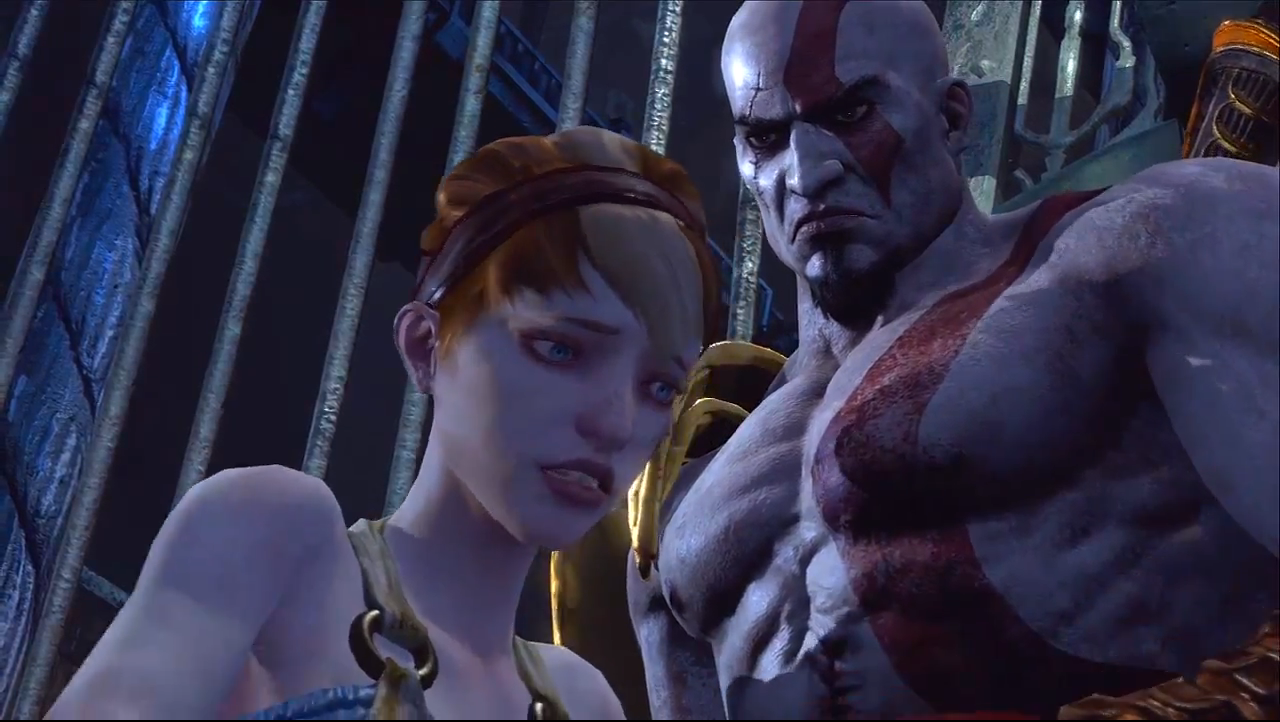
In Greek mythology, she's: Ancient Greeces answer to Eve, made from clay by Hephaestus. Pandora seems to have actually been made to punish mankind for accepting stolen fire from Olympus; in some versions of the story, this punishment included Pandora being wicked and duplicitous and just way too pretty and hnnnnghh why wont she just take off that chiton already, because Ancient Greece had issues, man. In others, she was an innocent. In either case, the gods gave her a box full of evil and she opened it, dooming humanity to suffer forever.
But in God of War, she's: A sort of ageless automaton whos loved like a daughter by Hephaestus and bears an uncanny resemblance to Kratos deceased daughter, Calliope. Also in this version, shes the key to opening the Box--which is strange, because Kratos opened it just fine in the first game without any help from her.
Gaia
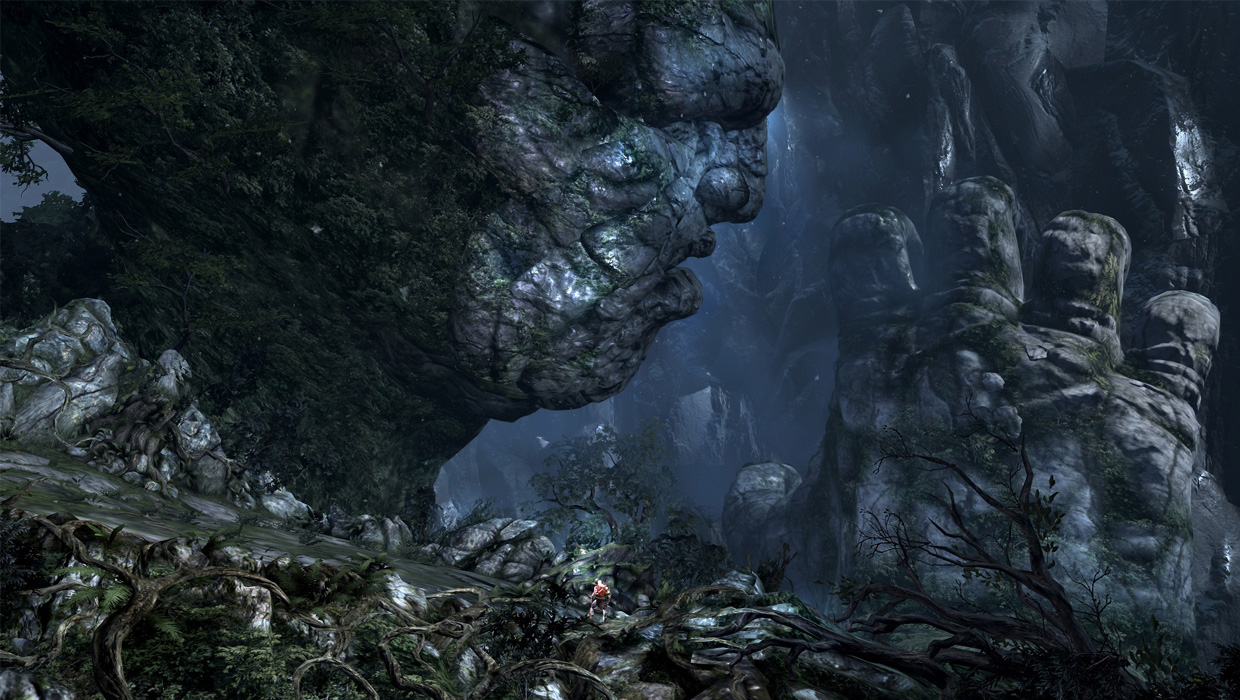
In Greek mythology, shes: The literal personification of the Earth, usually depicted as a human-looking mother. Actually one of the primordial Greek gods, she gave birth to the Titans (and pretty much everything else) by mating with Ouranos, personification of the sky, and other Primordials.
But in God of War, shes: Busted down to the level of a Titan herself, but at least she gets to narrate things. God of Wars Gaia is appreciably vast, a massive chunky humanoid made from trees and rocks and stuff, and shes voiced by Linda Hunt, which is great. But considering that the mythological version was literally the planet itself, shes a little underwhelming--especially since she turns out just as petty and duplicitous as everyone else Kratos meets.



